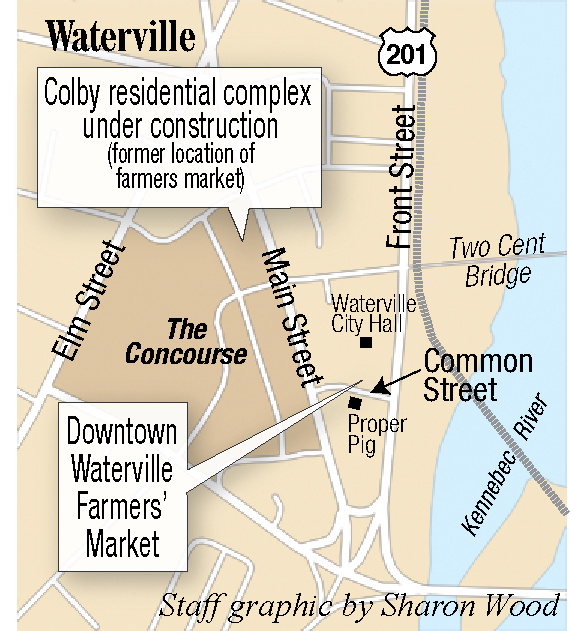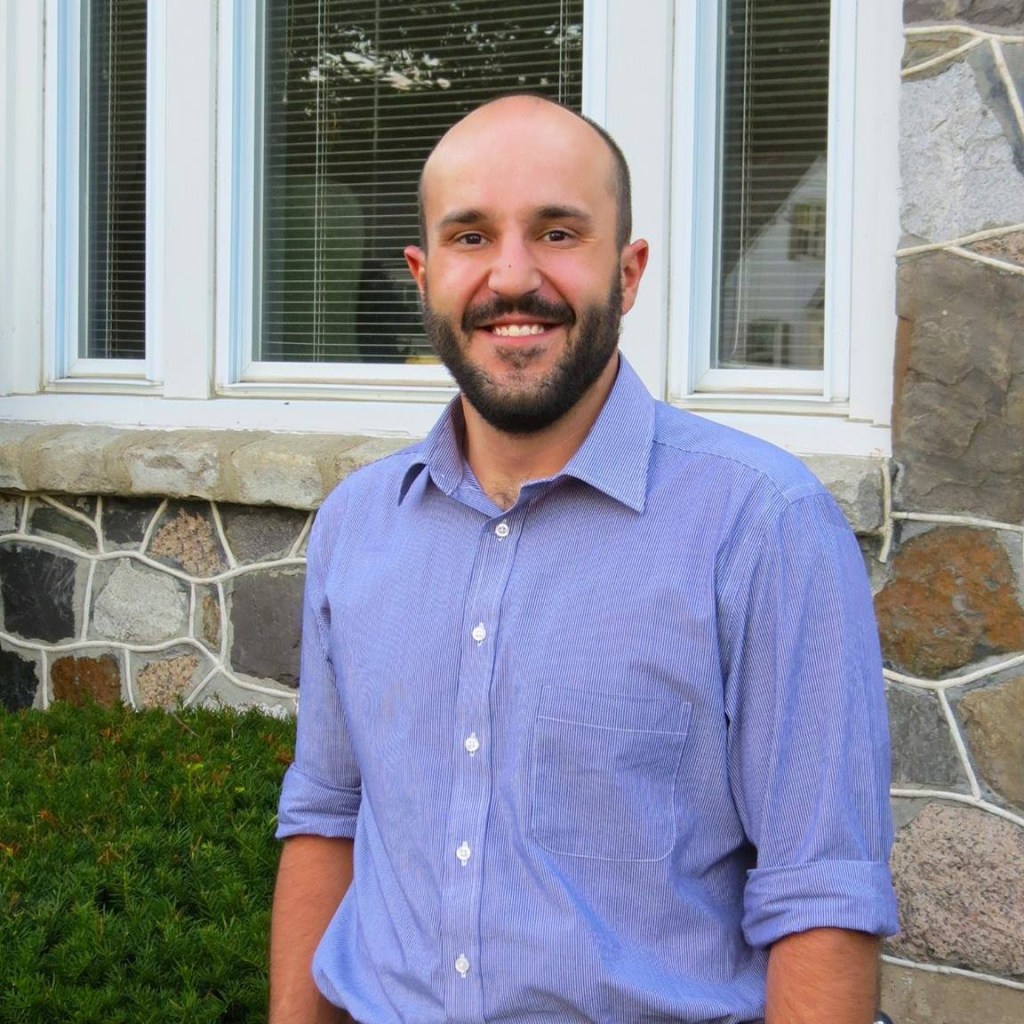WATERVILLE — The City Council will be looking to appoint a new councilor to represent Ward 5, as Councilor Nick Champagne, R-Ward 5, resigned and will become the new city engineer, replacing Greg Brown, who is retiring.
Champagne, who announced his resignation at Tuesday night’s council meeting, will begin the job March 12 at a salary of $70,000, not including benefits, according to City Manager Michael Roy. Champagne was elected to the council in November 2016 and previously was chairman of the Planning Board.
Brown, who has worked for the city more than 20 years, plans to retire in a few weeks.
“It was supposed to be March 1, but he’s going to stay on to help Nick through a transition period,” Roy said Wednesday. “Greg will leave on or around April 1.”
Roy said Brown’s varied knowledge he developed about so many different municipal functions during his career will be hard to replace.
“But I’m so happy that Nick has agreed to come on board,” he said. “Being a Waterville native, I think that he has a special affection for this community and is someone, I think, who is prepared to be here for a long time. I think he has a solid skill set to take Greg’s responsibilities over. Obviously, there’ll be a learning curve. He’s been working within the city a number of years and already made contact with a lot of key people he’ll have to work with going forward.”
Brown was out of the office Wednesday and could not be reached immediately for comment.
Champagne said at Tuesday’s council meeting that the city engineer’s job presents an incredible opportunity for him and his family, as he will be able to continue to serve the city, which is in the midst of many projects he is excited to help with.
Meanwhile, Julian Payne, who was elected to the Waterville Board of Education in November and has been in office since January, said he will apply to be considered to replace Champagne on the council. The council has authority to appoint a replacement for Champagne, and that person would serve until the November election. A person elected in November would serve out the remainder of the term, which ends in 2019.
Payne said Wednesday that he was elected to the school board by 60 percent of voters in his ward and he considers that an instruction to the council that voters in his ward want him to be a councilor.
He said it was not his burning desire to run for that seat, but his views are very similar to Champagne’s and they both represent the wishes of people in their ward.
“It would be sad to leave the school board, but I didn’t expect Champagne to resign,” Payne said.
The council on March 6 will consider voting to accept Champagne’s resignation and declare a vacancy in the seat, and then the position would be advertised and interested candidates would be asked to send letters or résumés to be considered by the council. Councilors then would interview candidates in a public session. Roy said the date for those interviews should be decided at the March 6 meeting.
In other matters Tuesday, councilors took a final vote to approve closing Common Street on Thursdays from April 26 through Nov. 15 this year for the farmers market.
Roy reported a solution was reached between business owners and market vendors about the market’s layout. Some business people had reported earlier that the market blocks access to their buildings.
“I think we all feel confident about giving this a try,” Roy said.
Ten or 12 parking spaces on the northwest curb of Common Street would be blocked off early in the day, around 7 a.m., on days the market is open, so people may not park there; but they still can drive down Common Street, he said. That will help prevent the problem businesses have, he said.
Some market vendors also will be located on the south side, as they have in the past, he said. As one travels from Main to Front Street, vendors will be on the Castonguay Square side, to leave an open space in front of businesses.
Councilors voted 6-0, with Champagne abstaining because he works for A.E. Hodsdon, which is located on Common Street, to approve closing the street for the market.
Councilors also voted 4-3 to approve a third amendment to the downtown tax increment financing district and a related development program. The amendment allows money from the TIF to be used for trails and amenities, including the Riverwalk to be built this year at Head of Falls. A final vote is expected March 6, and then the proposed change would be sent to the state for final approval.
After a lengthy discussion, Council Chairman Steve Soule, D-Ward 1, and Councilors Lauren Lessing, D-Ward 3, Sydney Mayhew, R-Ward 4, and Winifred Tate, D-Ward 6, approved the amendment; councilors Champagne and Nathaniel White, D-Ward 2, and Jackie Dupont, D-Ward 7, opposed it.
Mayor Nick Isgro said there had been no discussion about a strategic goal for how the money should be used.
Roy said the scope of the Riverwalk had changed in that the cost estimate started out at $900,000 and now is $1.5 million, and most of it has been raised. But some TIF money could be used for the Riverwalk if the amendment is approved by both the council and the state.
“All this does is give us the option of using TIF money if you decide,” Roy said.
Mayhew, a member of the city’s Riverwalk Advisory Committee, said Head of Falls will be enhanced by the Riverwalk and will make the area more marketable for investors. Underground electricity and other infrastructure is already in place there, he said.
Tate, who also serves on the Riverwalk committee, said there is a lot of momentum and excitement around the Riverwalk.
“I think we’re all excited to see what happens in that space and how it can transform the downtown,” she said.
But Payne said it was his understanding that Roy had said from the outset that he did not envision taxpayer money would be used for the Riverwalk and money from the TIF would be taxpayer money. Mayhew said he was most concerned about not borrowing money for the Riverwalk.
Isgro said he was concerned about the message that would be sent, especially after the last two difficult municipal and school budgets. If TIF money is used for a Riverwalk while people are talking about going hungry and not being able to afford to live in their homes, that does not bode well, he said.
“I’m just a little concerned about the message there,” Isgro said.
Under the manager’s report section of the agenda, councilors and residents discussed a proposal by White to enact an ordinance regulating where some sex offenders may live in the city. The effort was initiated by resident Andrew Ayers, a teacher who said he is concerned about sex offenders living too close to schools and other places children frequent.
City Solicitor Bill Lee said he thinks it would help to get a small working group together to hone language for such an ordinance before the council votes on it. White said Mayhew and Dupont offered to help with that.
Lee said there are a lot of landlords in Waterville and if an ordinance stipulates where registered sex offenders may live and where they may not, people need to know exactly what those areas are. Landlords also will need to know because there is liability attached and they would have to pay a fine for violations. How an ordinance is enforced also has to be spelled out. While an ordinance might stipulate where registered sex offenders can live, nothing prevents a sex offender from hanging out all day in areas such as bus stops, according to Lee.
Burleigh Street resident Patricia Vashon stood to say that several years ago a family lived in a nearby apartment building with two little children and police delivered fliers saying a sex offender lived at that address. Vashon called police to ask if they were aware children were living in the building. She said policed advised her to call state child protective services, which she did.
“It turned out that the sex offender was living in the same apartment as the couple with two little girls, and the father of those children was an unregistered sex offender,” Vashon said. “So I guess what I’m saying is we need to be very vigilant about where these people live.”
Payne said he agrees with having an ordinance but wonders how it would be enforced, and many sex offenders have not ever been caught, so such an ordinance might create a false sense of security.
“Yes, it’d be helpful, but the ones that are registered and stamped is just the tip of the iceberg,” he said.
Amy Calder — 861-9247
Twitter: @AmyCalder17
Send questions/comments to the editors.






Success. Please wait for the page to reload. If the page does not reload within 5 seconds, please refresh the page.
Enter your email and password to access comments.
Hi, to comment on stories you must . This profile is in addition to your subscription and website login.
Already have a commenting profile? .
Invalid username/password.
Please check your email to confirm and complete your registration.
Only subscribers are eligible to post comments. Please subscribe or login first for digital access. Here’s why.
Use the form below to reset your password. When you've submitted your account email, we will send an email with a reset code.